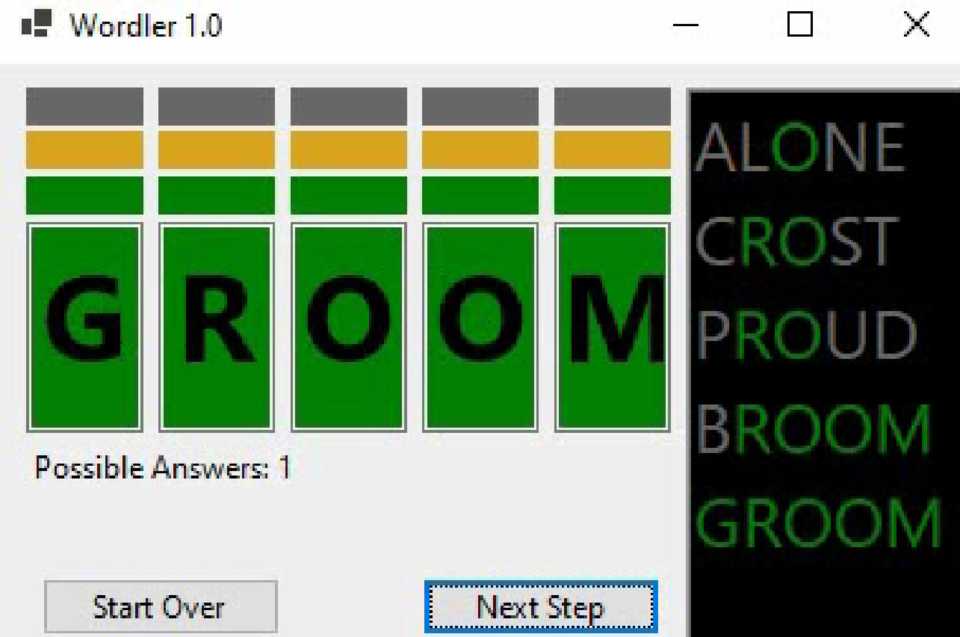Most are content to solve their daily Wordle puzzle and wait patiently to improve their score the next day. One sa国际传媒 man decided he wanted to cut to the chase.
Mike Gauer started playing the popular word game just earlier this month but he soon wanted to take it to the next level. Gauer is the general manager at in Chilliwack and a hobby programmer. Gauer regularly uses his programming skills to save work hours at Load Warrior and quickly recognized he could do something similar with Wordle.
“I thought I can play against this Frankenstein creation that I make and I can see if I can beat my own program," Gauer said in a recent interview with Vancouver Is Awesome.
It only took Gauer one Friday evening and a Saturday morning to build what would be the foundations of Wordler 1.0.
"It actually completely changed the way that I viewed the game because I had to really sit down and think from a logical perspective. 'Okay, to make this algorithm know how to solve it, what are the logical steps to solve it?'" Gauer said.
As Gauer explored the logical implications in creating the program, he found he no longer finds quick Wordle solves very impressive. Instead, it’s all about regular wins in the 3-4 guess range.
To me now, that is far more impressive than someone who just gets it in one or two guesses," Gauer explained.
To understand why that is, Gauer laid out a simple scenario. Say the word of the day is "light", say player A lucks into guessing "night" and gets the correct answer in their second guess. Then take player B, they also guess "night" but then guess "might", "fight", "sight", "right" and "tight." Player B of course would have lost the game but only due to bad luck.
"To me, I look at them both and say, well, you're both in equal standing because you're both gambling," Gauer said.
Gauer’s program on the other hand has access to all 2,300 possible answers and 10,000 accepted guess words. As the program runs it instantly eliminates possible answers based on incorrect letters. It also doesn't gamble. Instead of guessing down the list like player B did, the program would guess a word like "fires", eliminating three of player B's incorrect guesses.
Wordler 1.0 takes 74 seconds to answer all 2,300 puzzles with a win rate of around 94 per cent. If allowed to solve all the puzzles without processing the visual elements it would take around 169 milliseconds or half the time it takes to blink.
So far Wordler 1.0’s longest winning streak is 233 straight games with a 36.8 per cent chance of getting the correct answer on the third guess and a 39.9 per cent on the fourth.
Gauer has made the program

